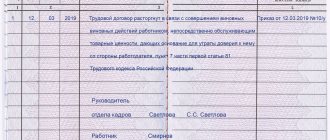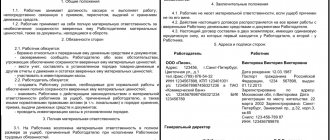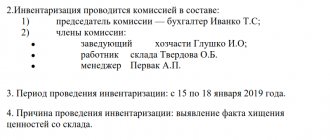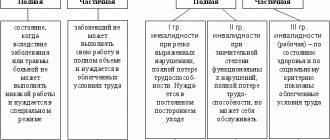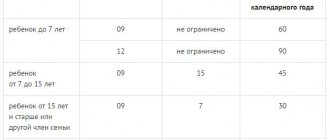Home / Labor Law / Payment and benefits / Sick pay
Back
Published: 05/12/2016
Reading time: 9 min
0
880
None of the working citizens are insured against temporary loss of ability to perform their work duties.
In this case, the citizen is obliged to provide the employer with an appropriate medical document confirming loss of ability to work. Without a properly completed certificate of incapacity for work, absence from work will be considered a gross violation of discipline, which may entail disciplinary punishment up to and including dismissal. The issuance of a sheet implies a medical examination carried out by the attending physician.
Such an examination is provided for by federal legislation (law number 323, article 59). And the procedure for issuing the sheet is indicated in the order of the Ministry of Health under number 624N, issued in July 2011. Features of the extension and execution of the sheet are regulated by the provisions of order number 1345N. If it is necessary to create a commission to renew the certificate, the procedure for medical workers must comply with the provisions of Ministerial Order No. 502N.
- Main goals
- Levels of expertise First level
- Second level
- Third level
- Fourth level
- Fifth level
What is EVN
A disability examination includes a set of examinations aimed at determining the employee’s ability to perform or not perform his professional duties. In addition, the examination determines:
- quality of treatment;
- terms of disability;
- the need to transfer the employee to another job or refer him to establish a disability group.
The examination is carried out in case of diseases or injuries, as well as other conditions associated with the inability to perform professional duties. These conditions include:
- quarantine;
- pregnancy and childbirth;
- caring for a sick child;
- sanatorium aftercare;
- prosthetics.
Important! A disability examination provides a person with official release from work and receipt of monetary compensation.
Reasons and types of benefits
Temporary disability is not only a consequence of inflammatory processes in the body and injuries received, but also the need to care for sick relatives, incompatible with the performance of work duties, a period of forced quarantine in order to eliminate the threat of infecting others with infectious diseases, preparation and the initial stage of motherhood. The accrual of all types of benefits and restrictions on payments are regulated by Federal Law No. 255-FZ of December 26, 2006.
The concept of incapacity for work includes the inability to fulfill the obligations determined by the employer and fixed by the employment contract due to the temporary absence of relevant documents confirming qualifications, leading to removal from work by the administration.
Employee illness and rehabilitation
A certificate of temporary incapacity for work in the event of an employee’s illness is issued for the actual duration of treatment, regardless of the type. A nuance in outpatient treatment is the need for the commission to confirm the fact of the disease and to extend the certificate after 15 calendar days.
If further treatment is necessary, the employee is sent for rehabilitation to a sanatorium-resort medical institution for a period of up to 24 days, with the exception of tuberculosis, the treatment period for which in the sanatorium is not limited.
If prosthetics are needed, the benefit payment includes the time required to travel to a specialized clinic.
Caring for a sick family member
- Registration of sick leave for caring for a sick relative
Certificates of incapacity for work are issued not only when the employee himself is ill, but also when it is necessary to care for a sick relative, in most cases a child.
The maximum number of days for a separate insured event depends on the status, diagnosis and age of the child:
- up to 7 years – no restrictions;
- from 7 to 15 years – 15 days;
- over 15 years old – 7 days (equal to an adult);
- regardless of age, if there are suspicions of cancer, complications after vaccinations and HIV infection, the period of temporary disability is not limited;
- with the status of “disabled child” under 18 years of age - without restrictions, despite the diagnosis.
Any relative other than the mother can apply for sick leave to care for a child, as a result of which, by law, he will be considered temporarily disabled.
The period of incapacity for work when caring for an adult family member is strictly regulated. Regardless of the severity of the disease, diagnosis, presence or absence of disability, the number of days for a single insured event cannot exceed seven; per calendar year, the period of care is no more than 30 days.
Quarantine
Quarantine is a system of anti-epidemic measures aimed at isolating the source of infection and preventing mass infection among the population. According to clause 3 of Article 5 of Law No. 255-FZ, temporary loss of ability to work is compensated for the entire period in cases of quarantine:
- in the organization of the insured person;
- in a preschool institution for a child under 7 years of age;
- any family member declared incompetent.
Quarantine can be established when an open form of tuberculosis, viral hepatitis or childhood infectious diseases are detected, accompanied by a wide distribution halo, severe form of development and course.
Decree
- Vacation after maternity leave: how to calculate annual vacation pay after leaving maternity leave
There is no official definition of the term “maternity leave” in the legislation of the Russian Federation. Maternity leave is understood as maternity leave, which gives a woman the right to stop working.
Depending on the circumstances, the duration is presented in the table:
| pregnancy process or | Number of calendar days of vacation according to BiR | ||
| adoption | Before giving birth | After childbirth | Total |
| Singleton pregnancy and childbirth without complications | 70 | 70 | 140 |
| Singleton pregnancy accompanied by complications during childbirth | 70 | 86 | 156 |
| Multiple pregnancy, regardless of the severity of labor | 84 | 110 | 194 |
| Adoption of a child before reaching three months of age | — | 70 | 70 |
| Adoption of two or more children under three months of age | — | 110 | 110 |
Along with parents, adoptive parents and guardians have the right to leave after childbirth.
Types of benefits
Uniform types of sick leave forms and the procedure for filling out are established by Order of the Ministry of Health and Social Development No. 624n dated June 29, 2011. The document provides special codes that define types of temporary disability. Depending on the cause of disability, various types of benefits are provided.
Coding allows the employer to instantly determine the cause of the disease, the validity of the extension of the sheet and compliance with the sick leave regime, which will allow the benefits to be correctly calculated.
Basic codes and meaning:
- 01 – general illness of the insured person;
- 02 – injury to the insured person;
- 03 – being in quarantine;
- 04 – occupational injury or accident at work, investigated by a special commission;
- 05 – provision of leave in connection with adoption or maternity leave;
- 06 – prosthetics in special medical institutions;
- 07 – sharp exacerbation of a previously acquired occupational disease;
- 08 – rehabilitation in sanatorium-resort institutions on the initiative of a medical organization as follow-up treatment after an illness;
- 09 - caring for a sick relative;
- 12-15 – diseases of children in severe cases, including the whole range of diseases of a disabled child.
In addition to the main ones, additional codes are provided to clarify the full picture of the course of the disease: compliance with or violation of the hospital regime (codes 21-28), establishing the degree of relationship when providing care for a child’s illness (codes 38-42).
Removal by management decision
There are objective and subjective reasons why an employer is obliged to temporarily suspend an employee from performing work duties.
These include:
- Inconsistency with the position held according to the updated job description. For example, installing new equipment requires an employee’s ability to “communicate” with it, for which it is necessary to undergo specialized advanced training courses.
- Loss of documents giving the right to perform labor duties (driving licenses for drivers, documents to carry weapons for law enforcement officers).
- Unsatisfactory completion of certifications, which are mandatory at a certain frequency, as stated in the employment contract.
- Appearing at the workplace under the influence of alcohol or drugs, violating the general rules of business etiquette.
- Disqualification recorded by inspection structures with a written determination in the manner established by the legislation of the Russian Federation.
Recognition as temporarily incapacitated and providing a period for correction is the most optimal decision of management in relation to the offending employee. All types of benefits for such disability have no relation to the employee, and a reprimand with entry into the work record book, disciplinary action and dismissal under the article are possible.
Legal regulation of examination of temporary disability
The regulation of the examination of disability is prescribed in the federal law “On the Protection of Citizens’ Health.” Law number 323 was adopted in 2011; EBL is mentioned in Article 59.
The main document is sick leave or sick leave. The form and procedure for issuing sick leave are established at the legislative level. Sick leave gives a person the right to receive official exemption from work duties, and subsequently monetary compensation.
Important! Only a medical worker - a doctor, paramedic or midwife - has the right to issue sick leave. A doctor can issue an exemption from work for a period of no more than 15 days, other specialists - for 10 days. They are not issued by hospital nurses, ambulance workers, blood transfusion stations, or sanatoriums.
EWH is organized in medical institutions with a staff of at least 15 people. The medical commission includes the deputy chief physician for EVN, the head of the department and the attending physician.
Common mistakes
Error: An employee requests that the attending physician extend his sick leave to 30 days.
Comment: The attending physician alone cannot decide to extend the certificate of incapacity for work for more than 15 days.
Error: The employee refuses to conduct a clinical expert commission.
Comment: If you refuse to conduct a CEC or MSEC, the sick leave is closed on the date of refusal to carry out the examination or failure to appear for the examination.
Work ability
This is a person’s ability to perform their professional duties in full without harm to health. Working capacity decreases with age, and it can also be impaired by diseases and certain other conditions.
There are several types of ability to work:
- general - the ability to perform any work under normal conditions;
- professional - the opportunity to engage in specialized work;
- part-time - work in light conditions.
The patient's ability to work is assessed by a medical professional.
Concept of work ability
A person's ability to perform a particular type of work is called work capacity. It includes not only the health to perform the job, but also takes into account the qualities that are necessary for it.
For example, a person may be healthy enough to work as an engineer, but not meet the requirements to become a pilot. Ability to work takes into account not only the physical condition of a person, but also his psychological characteristics.
The doctor examines the patient, studies his tests and makes a decision about his disability. Sometimes the ability to perform work duties depends not only on the health of the patient himself, but also on other people. For example, if the cook's wife has hepatitis, then he should not cook.
Medical and social criteria for disability
Disability is the inability to perform work temporarily or permanently due to a health condition. The criteria for disability are:
- impairment of physical functions;
- difficulties in self-care;
- psychological disorders.
A medical criterion is a reasonable diagnosis indicating the degree of impairment of body functions. Social criteria are features of the patient’s profession that can influence the prognosis of the disease.
Temporary disability occurs during acute illness, injury, or quarantine. With proper treatment, body functions are restored and work ability returns. Persistent develops in chronic diseases, injuries, accompanied by irreversible changes in the body.
The role of the medical commission
When a patient consults a doctor, but it is a question of incapacity for work lasting more than 15 days, he forwards this issue for consideration by a commission at the patient’s place of residence or place of attachment. In most cases, the certificate is issued for a period not exceeding ten months.
In more severe cases (for example, in the presence of tuberculosis), this period increases to 12 months.
The commission includes doctors of various specialties. They can provide the patient with comprehensive assistance in treatment.
Regulatory and legal framework for the examination of temporary disability
The EBL is based on the following orders:
- 323 of 2011 - “ On protecting the health of citizens ”;
- 165 of 2011 - “ On compulsory social insurance ”;
- 255 of 2012 - “ On compulsory insurance in connection with maternity .”
The law approving the procedure for conducting an examination of temporary disability is Order 624n of 2011 “On approval of the procedure for issuing certificates of incapacity for work.”
Documents certifying temporary disability
A sick leave certificate confirms temporary loss of ability to work. This is a document of strict accountability that gives a person the right to:
- official release from work during illness;
- receiving monetary compensation for missed shifts from the social insurance fund;
- receiving maternity benefits.
Sick leave is issued only to persons who have an employment contract and are insured on the territory of the Russian Federation. Students are issued a certificate of form 095у.
Permanent disability and its types
A separate type of disability is permanent, the peculiarity of which is that it can be either permanent or temporary, and also be both complete and partial. Another name for permanent disability is disability .
In addition to certain health characteristics, disability carries certain legal consequences for the employee:
- partial restriction or complete refusal to carry out work activities;
- the right to receive additional education in order to master a new profession that is suitable for health reasons;
- the right to receive monetary support in the form of benefits and pensions;
- availability of certain benefits during employment and dismissal, etc.
Disability can be either temporary or permanent. In the first case, after certain procedures, restoration of working capacity is allowed, in the second case this is impossible.
Determining disability is a special procedure that is carried out not by an individual doctor at a medical institution, but by a specialized government body - the Bureau of Medical and Social Expertise (MSEC). During its implementation, a group of specialists resolves the following questions regarding the patient:
- establishing a disability group;
- development of an individual rehabilitation program;
- identification of necessary social protection measures;
- the possibility of referral for training taking into account medical indications, etc.
This happens by analyzing and assessing certain criteria characterizing a person’s ability to work, namely:
- communication skills;
- self-care ability;
- the ability to control one’s actions;
- ability to carry out any work activity;
- orientation and movement skills;
- learning abilities.
After a disability is established, regardless of its degree, the patient has the obligation to regularly undergo the MSEC procedure.
Otherwise, he may lose the right to receive benefits and other forms of social security.
Pay on holidays with a shift work schedule - find out how to do it correctly. Do you want to understand the funded part of your pension? The necessary information is in our article.
In 2021, military pensions will be increased. Find out which categories will be affected by the increase by reading this article.
Organization and procedure for conducting EVN in medical organizations
The EWH procedure is established at the federal level.
Scheme of EWH levels in medical organizations
EWH is carried out according to a level system. The level diagram looks like this:
- the first is the attending physician;
- the second is the medical commission of the medical organization;
- the third - the medical commission of territorial health care;
- fourth - commission of the health authority of the subject of the country;
- the fifth is the chief specialist in EWH of the Ministry of the Russian Federation.
In a medical institution, only the first two levels are used.
Functional responsibilities of participants in the examination of temporary disability
Each specialist participating in EWH performs a specific function. The main work is carried out by attending physicians. In large institutions, nurses are involved in the examination. A special office is allocated for them, where ballots are issued.
Attending doctor
When visiting the clinic for the first time, the patient sees the attending physician. To determine the degree of a person’s ability to work, the doctor:
- conducts an inspection;
- orders an examination;
- Based on the data obtained, it makes a conclusion about the state of human health.
If the patient is unable to work, the doctor issues him a sick leave certificate, recording the examination and examination data in the outpatient card. The number and duration of sick leave are also entered there. The specialist prescribes treatment and determines the date of the next appearance. During repeated examinations, the doctor reflects the dynamics of the disease and the response to treatment. If the patient remains incapacitated for work for more than 15 days, the doctor refers him to a commission to extend sick leave and adjust treatment.
Head of department
Monitors doctors’ compliance with the procedure for issuing sick leave and conducting primary EVN. Periodically checks the correctness of filling out medical documentation. If necessary, the manager assesses the quality of examination and treatment of patients, and leaves his note in the outpatient card. The manager does analytical work, draws up reports, and sorts out mistakes with doctors.
Deputy Chief Physician for Examination of Temporary Disability
Handles documentation and reporting work. The duties of the deputy include:
- carrying out random control of documentation;
- participation in complex clinical and diagnostic cases;
- interaction with the medical and social examination bureau;
- considers controversial situations with insurance organizations and patient complaints;
- sends doctors of various specialties for training in EWH.
The deputy chief physician is the chairman of the medical commission in a medical organization.
Head of the Ministry of Defense
Fully responsible for EVN in a clinic or hospital. The chief physician establishes the composition of the medical commission and regulates its work. If an employee violates the rules and basic principles of disability examination, the chief physician takes appropriate disciplinary measures.
Medical commission
The tasks of the medical commission include:
- assessment of the quality of diagnosis and treatment of patients;
- extension of sick leave over 15 days in accordance with order 625n of the Ministry of Health of the Russian Federation on certificates of incapacity for work;
- resolving complex or conflict situations;
- referral of patients for medical and social examination;
- recommendations for employment in accordance with the level of health;
- registration of specialized sick leave.
The commission consists of three specialists - the attending physician, the head of the department and the deputy chief physician.
What is a disability examination?
If a person gets sick or injured, he has to see a doctor. The doctor will not only help organize treatment, but will also issue a sick leave certificate, if necessary.
Not every disease means disability, but only one that interferes with the performance of professional duties. When deciding whether to issue a sick leave certificate, the doctor must evaluate the following:
- patient's health status;
- his ability to do his job.
For example, if a person is hoarse, this makes the singer unable to work. However, if we are talking about an accountant, then in this case his ability to do his job will not be affected.
Carrying out such an examination helps to cure the patient, reduces the risk of complications, and prevents the disease from becoming chronic. When making a decision, the doctor or commission must determine whether it is a total or partial disability, whether it is permanent or temporary. This is based on the following:
- Temporary disability occurs due to illness or injury. It interferes with the performance of normal work duties for a limited period of time.
- Partial disability prevents you from performing your direct job duties, but allows you to perform others. For example, we may be talking about easier working conditions.
- Complete means the inability to perform any job duties.
Not only the patient’s condition is considered, but also conclusions are drawn about the causes of the disease. It is important to determine the optimal methods and prospects for treatment.
If we are talking about persistent violations, then this issue is examined by an expert medical and social commission. At the same time, it is important to carefully and comprehensively study the causes of disability, determine whether the patient will be able to perform work duties in the future and which ones. The examination takes place taking into account the criteria set out in medical regulatory documents. As a result, the patient is issued a certificate of disability of the appropriate category.
Control over the examination
At the level of the medical organization, control over EVN is exercised by the chief physician. At the territorial and federal levels, control is exercised by health authorities. The procedure for registering sick leave and paying for it is monitored by the FSS, the social insurance fund.
A work capacity examination is a type of medical activity, the purpose of which is to determine the state of a person’s health that will allow him to fully perform his professional activities. If a person’s health currently does not allow him to work, he is considered temporarily disabled. To establish this fact, the attending physician conducts an examination and examination. A sick leave certificate serves as proof of incapacity for work.
Answers to common questions about the concept and types of temporary disability
Question No. 1: Is it possible to extend the sick leave issued upon discharge from the hospital?
Answer: If, after inpatient treatment, follow-up treatment is required on an outpatient basis or in a sanatorium, then an extension of sick leave is allowed.
Question No. 2: I am a carrier of a dangerous disease and I myself do not feel unwell, but the attending physician forbade me to go to work, is this legal?
Answer: The doctor’s actions are based on the law, since your condition is dangerous for others.
Rate the quality of the article. Your opinion is important to us:
